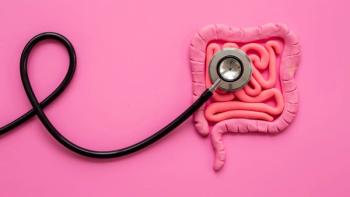
Do You Want to Have a Long Life or Babies?
The side effects of colorectal cancer and its treatment—which span beyond fertility issues—require constant renegotiation and reframing of what it means to be me.
“Do you want a long life or babies?” the
That evening—in an attempt to channel my rage, fear and feeling of powerlessness—I began researching fertility preservation options, and I found a procedure called an
The next week I found myself in a different city with a different team of doctors. I hadn’t left the first doctor because of his stellar bedside manner but because I was determined to continue with my life as uninterrupted as possible, which meant relocating to finish a graduate degree program. I waited for fertility preservation to be broached and when it wasn’t, I brought it up.
I then saw a fertility specialist who told me that an ovarian transposition would not work. I argued my case, and I shared the journal articles. He didn’t change his mind, but my oncologists did, and they found a surgeon to do it.
Dr. M met with me on a Friday, a couple of hours before having my chemotherapy port placed. He listened to me, treated me as an intelligent person and said that while he could not make any promises, he could do the procedure. I was in the operating room early Monday morning. I did not have the option of harvesting and freezing eggs. As it ended up, I had to start radiation that Thursday, when the tumor landed me in the ER with a partial bowel blockage.
Chemotherapy is tough on the ovaries; the ovarian transposition does nothing to protect them from damage due to chemotherapy. I know that my ovaries took a hard hit from treatment and that I will certainly “run out” of eggs early. But the transposition gave me a sense of control over my life and body at a time when it felt like I was losing everything. My doctors worked with me and I am forever grateful.
For far too many young people, however, this doesn’t happen. It is not just about the ability to have biological children. It is about the conversations that need to be had with patients about what treatment might do to hormone function and tissue damage—and the things that might be done to ameliorate those changes.
I completed 28 rounds of radiation and chemo, surgery to remove the tumor and insert a temporary ileostomy for 7 months, six rounds of Oxaliplatin and Xeloda and surgery to reverse the ileostomy.
This July 7th will be five years since my diagnosis. I continue to have periods. But my uterus is still likely damaged from the radiation, and my eggs damaged from chemo. This compounds with the fact that I have Lynch Syndrome—a DNA mismatch repair disorder that means my body doesn’t properly repair DNA damage and thus increases my risk of various cancers, including endometrial.
BC (Before Cancer) I tended toward the reserved in personal matters. But to get through treatment, I needed the support of community. I also believe that had I known a single other young person with colorectal cancer, I would have taken my symptoms more seriously and pushed harder for doctors to address them. I share my story to raise awareness. I am grateful to be alive and that I remain NED (No Evidence of Disease).
My life is not the life I envisioned for myself, despite all of the good things that have happened and are still happening. The side effects—which span beyond fertility issues—require constant renegotiation and reframing of what it means to be me, to live.
I do not share because I seek sympathy. I share because I want other survivors to know they aren’t alone. To know that this AC (After Cancer) life can be beautiful but that it is also painful—and that is normal. And to know that, while medical professionals do hold much knowledge, it is okay—even imperative—to challenge that knowledge, to stand up for yourself, to demand that your voice and what you need be heard.
One of my favorite poets is Rumi, so it was fitting that his words hung on the cancer center wall above the bell you ring when you finish radiation treatment:
“But don’t be satisfied by stories, how things have gone with others. Unfold your own myth.”
I think the only way we can do that individually is to hold each other up in community, to share our stories, and to stand up together so that our voices might change the way things are done.




